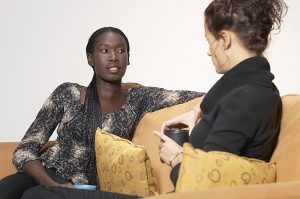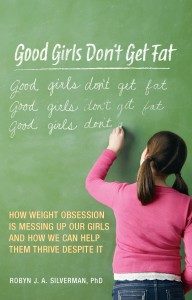Louis C.K.’s “Fat Girl” Scene Strikes a Cord with Women Everywhere
Last week, I was on Good Morning America to talk about Louis C.K.’s now famous “Fat Girl” scene in which actress Sarah Baker, gives a unique and honest perspective about being “a fat-girl in her 30s living in New York City.” And while some still complained that the scene was far from perfect, others found it “absolutely magnificent.” Vanessa, the character played by Baker, simply put her opinions out there, without sadness or apology, and said what was on her mind.
Why did it strike such a nerve?
In short; when we are used to seeing fantasy, photoshop and fabrication of the truth, a little raw honesty goes a long, long way. The character of Vanessa is vivacious, smart, interesting and beautiful and she tells Louis without any self pity, be honest with me, be honest with yourself and realize by saying “you’re not fat,” you discount me, you refuse to see me and you join the legions of others who stereotype because of my weight. Being “fat” doesn’t take away a person’s gifts and strengths. Being plus-size and amazing are not mutually exclusive. Can’t she just be who she is and still be loved and celebrated?
What does this segment tell men?
This 7 minute segment tells men to (1) break the bond between the term fat and the ugly stereotypes that are unfairly associated with it, (2) hang up your hang ups and be with the person who you like and who brings out the best in you and (3) realize that the problem of stereotyping women is not just a woman problem, it’s everyone’s problem—don’t be another of society’s lemmings, be part of the solution.
What’s one thing we can take from this scene?
People aren’t seeing themselves reflected in the media and this is warping our concept of what is normal. I think society needs to see and hear from someone who so obviously breaks the stereotype, that everyone is worthy of being loved, everyone of us brings something important to the table and “fat” and “thin” are simply descriptors of body types not of worth or character.
Brief aside: I really enjoyed doing this segment on Good Morning America. And an extra perk? I met the enormously talented Jim Parsons that day who was also there. Bonus! Or should I say, Bazinga!
Now back to Louis C.K. What did you think of the segment?


 It’s Fat Talk Free Week and, like every year, we are being challenged to drop the fat talk between friends. This can be a tall order for many. Why? Because fat-talking has become a habit and a bona fide, integrated component of many friendship circles. Is it part of yours?
It’s Fat Talk Free Week and, like every year, we are being challenged to drop the fat talk between friends. This can be a tall order for many. Why? Because fat-talking has become a habit and a bona fide, integrated component of many friendship circles. Is it part of yours? So what can you do about it?
So what can you do about it?
 It’s been a year since the launch of
It’s been a year since the launch of